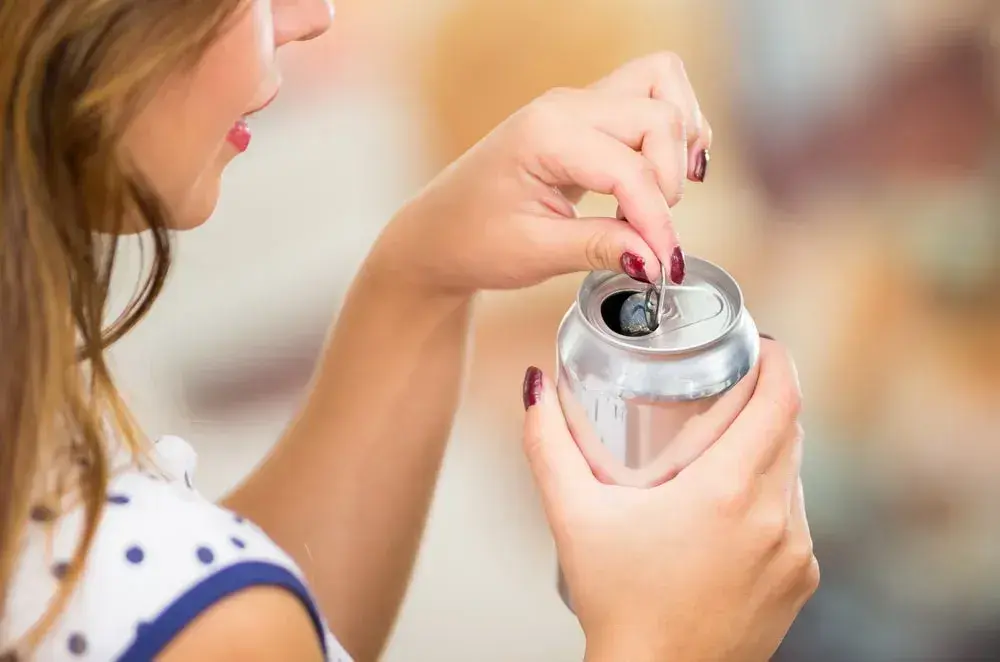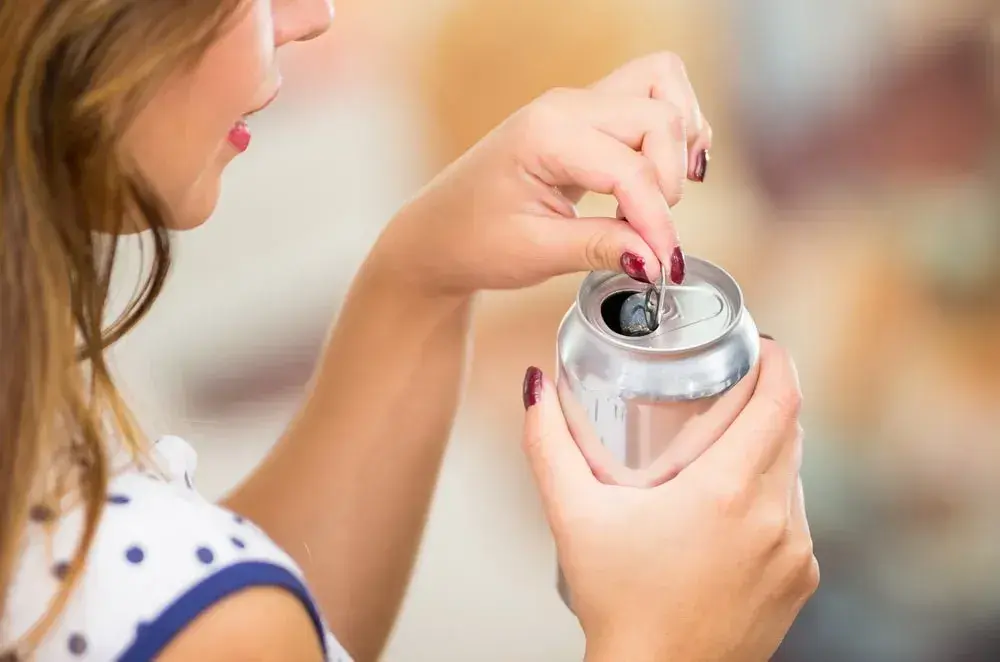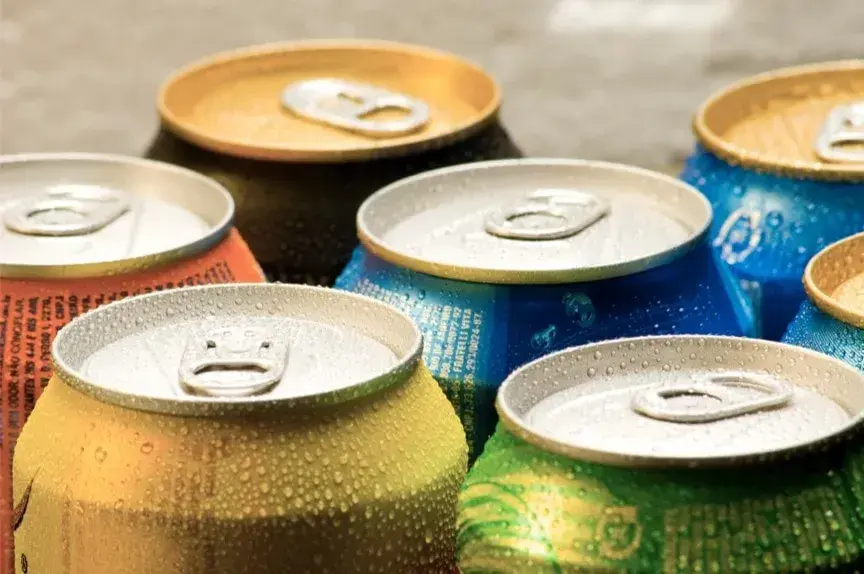
/assets/images/provider/photos/2579868.jpg)
For years, we’ve been told that cutting back on calories will help us lose weight. This concept of calorie restriction is at least partially responsible for the popularity of diet soda and other zero-calorie drinks. In fact, many people drink diet soda in place of water because they enjoy the taste and assume it’s equally healthy because both contain no calories.
Unfortunately, losing weight is not as simple as cutting calories. And, just because a food or beverage contains zero calories, that doesn’t necessarily mean it’s good for you. Evidence shows that diet soda may not be a healthy beverage choice.
Following are some reasons you may want to rethink your diet soda habit:
1. Diet soda tricks your taste buds
Food cravings are a complex process. They are partially governed by our DNA and hormones, but they are also influenced by the foods we eat regularly.
Artificial sweeteners commonly found in diet soda are much sweeter than natural sweeteners like sugar and honey. The extreme sweet taste can make the taste buds and brain “expect” foods to be extra sweet. Over time, this means that healthy foods like vegetables and even sweet fruit can taste dull, flavorless, or undesirable. This could make it even harder to meet your healthy eating goals.
Cutting out diet soda can help you retrain your taste buds and brain to expect natural sweetness. When you eliminate these artificial sweeteners, you’ll be more likely to notice the sweetness in some berries, a cherry tomato, or a crispy bell pepper.
2. Artificial sweeteners can still spike blood sugar and insulin
Diet soda may seem like a healthy option for people with diabetes or blood sugar concerns. In fact, that’s one of the reasons it was invented.
But, artificial sweeteners may still cause blood sugar levels to rise. This causes a chain reaction in the body that triggers the release of insulin, which leads to fat storage and weight gain. One study says that artificial sweeteners, like those in diet soda, trick the body into thinking it’s getting sugar. As a result, it releases insulin — just like it would if you were eating regular sugar.
Too much release of insulin over time leads to insulin resistance. This means the body doesn’t respond well to insulin, which is needed to keep blood sugar levels in the normal range. Blood sugar levels may get gradually higher, leading to type 2 diabetes.
3. Ultra-sweet drinks make you want to eat more sweets
As if passing up that cupcake weren’t difficult enough, if you turn around and drink a diet soda, you could be making your battle even harder.
Some research shows that artificial sweeteners, like those found in diet soda, do not activate the food reward response in the brain. Your brain doesn’t get the signal to be satisfied when you consume diet soda. In fact, the sweeteners in diet soda encourage sugar cravings.
4. It can raise your risk of diabetes and heart disease
Research shows that drinking diet soda can raise a person’s risk of getting metabolic syndrome. Metabolic syndrome is not a disease. It’s a collection of risk factors that often lead to weight gain, type 2 diabetes, and heart disease.
One study found that artificial sweeteners were linked to metabolic problems that ultimately lead to these chronic health conditions.
5. Diet soda detracts from your water intake
Plenty of water is one of the keys to better health. In fact, drinking plenty of water can help you lose weight.
Unfortunately, when you reach for a diet soda, you’re also neglecting your body’s need for fresh, clean water to help it detox and carry out its many functions. Instead, you’re consuming artificial sweeteners, colors, flavors, and preservatives that serve no purpose in the body.
6. It harms your dental health
Many people know that candy and sugar are big promoters of tooth decay. But even if your soda is sugar-free, it’s not doing your mouth any favors.
Not only can the coloring in diet soda cause staining and yellowing of the teeth, but the acid can erode tooth enamel, which cannot be repaired once it is lost. This can lead to permanent discoloration of the teeth and weakening of their important protective barrier.
7. Artificial sweeteners can trigger headaches
If you’ve ever gotten a headache for no obvious reason, take a look at your beverage. Artificial sweeteners can cause headaches, and this association has been mentioned in many health reviews.
If you are at all prone to headaches or migraines, you should steer clear of diet soda and artificial sweeteners like aspartame. Even if you don’t get headaches often, you could still get one from lack of proper hydration if you’re sipping soda instead of water.
A pounding head can quickly sideline your day, along with sabotaging your healthy eating or exercise goals.
8. Diet sodas harm gut health
There is a strong link between gut health and weight loss. Your gut holds a carefully balanced microbiome that includes both good and bad bacteria. When your gut has plenty of good bacteria, it can fight off the bad bacteria, helping it achieve an optimal balance that can actually help control your appetite and keep weight off.
Research has found that diet soda can disrupt the gut balance. This, in turn, can contribute to metabolic problems that lead to diabetes, heart disease, and other inflammatory and chronic diseases. This same research suggests that this imbalance can contribute to weight gain.
Cutting back — you can do it
If you’ve been drinking diet soda regularly, be patient with yourself as you try to cut back. The habit can be tough to break, but it can be done.
Focus on ways you can put healthy things into your body and hydrate with plenty of water. Use healthy soda alternatives like sparkling water infused with fruit to help you along the way.
Are you ready to take the next step toward a healthier you? We’re here to help. At Garcia Weight Loss and Wellness Centers, we’ll create a customized wellness plan to help you lose weight and meet your health goals. Contact us today for your no-cost consultation!



